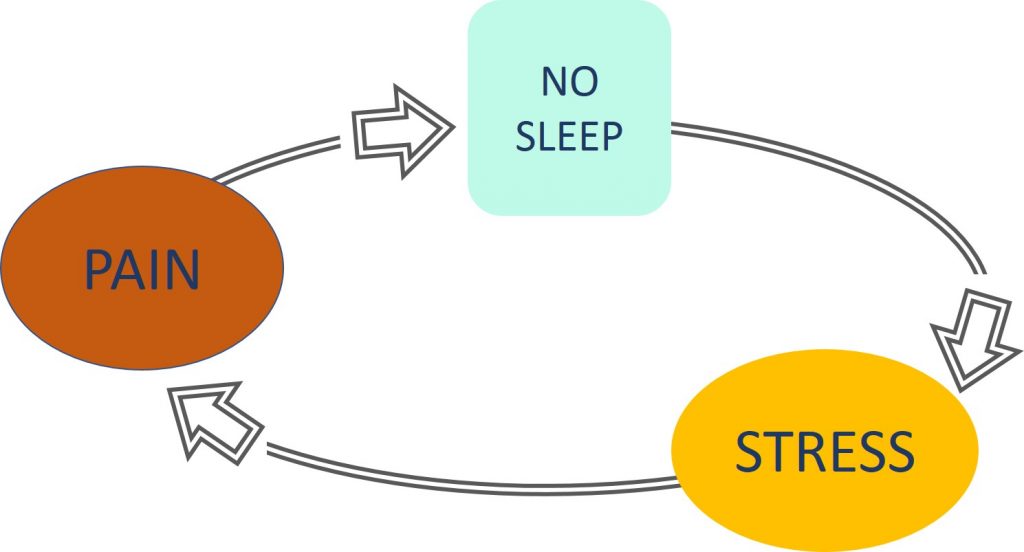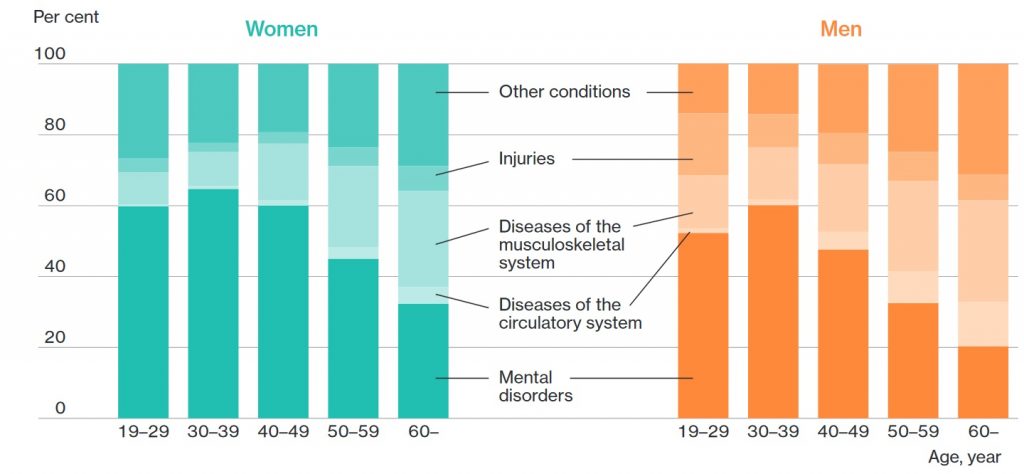In the last days of our clinical immersion in the Vårdcentral we summarized our experience, sorted observations and started to see patterns. One area that caught our interest was psychological aspect of illness. How a single event, e.g. back pain, sometimes leads through long-term discomfort into sick leave due to mental disorder…
Pain – a vicious circle
Let’s begin with a patient, who sought help in Vårdcentral for a back pain. Pain can be related to occupation, e.g. bus driver has to sit and hold the steering wheel day after day, which after some years might lead to pain in back, arms and migraines. Unless he or she changes occupation, it could lead into chronic pain. When the pain is so bad that you can’t sleep, you get exhausted. This leads to increased stress, strain of your muscles, more pain, sleep deprivation, chronic stress and eventually mental disbalance or disorder.

Mental disorders are most common reason for sick leave
In the last five years the most common diagnosis for sick leave was mental disorder, accounting for 53% of all cases for women and 41% for men. It is more common in people under 50 years old (1). In the group of mental disorders the “adjustment disorder” and “reaction to severe stress” increased the most and are responsible for half of the sick leave cases (2). These disorders don’t always need to be solved by medication and TioHundra has a strategy how to manage this: start to tackle anywhere, pain, sleep or stress, but only use pills as the last resort. It is harder to stop using medication, people might become psychologically dependent: “If I don’t take the painkiller, my back will hurt again”. There are tools to try first, learn the right exercise to relieve muscle pain with a sjukgymnast, learn to manage stress with mindfulness.

Source: Försäkringskassan, Social insurance in figures 2018 (1).
A way out: exercise for body and mind
Mental disorders have the longest sick leave periods but the disorders related to stress have better prognosis of coming back to work (2). That is encouraging and can be helped by rehabilitation and attending TioHundra’s mindfulness groups.
To explain concept of mindfulness I borrowed words from an MIT stress-professor Jon Kabat-Zinn:
” We are sorely lacking, if not starving for some elusive but necessary element in our lives. We might even have a strong intuition on occasion that what is really missing in some profound way is us – our willingness or ability to show up fully in our lives and live them as if they really mattered, in the only moment we ever get, which is this one – and that we are worthy of inhabiting life in this way and capable of it.”
“Mindfulness is actually practice. It is a way of being, rather than merely a good idea or a clever technique, or a passing fad.”
Jon Kabat-Zinn,
Boston, Massachusetts, December 2010
Foreword for a book “Mindfulness a practical guide to finding peace in a frantic world.” by Mark Williams and Danny Penman
Petra Szeszula,
CIF 2019
2019-06-24

Image: courtesy of Maciej Szeszula
More information
Försäkringskassa explains: Psykisk ohälsa är inte samma sak som sjukdom





